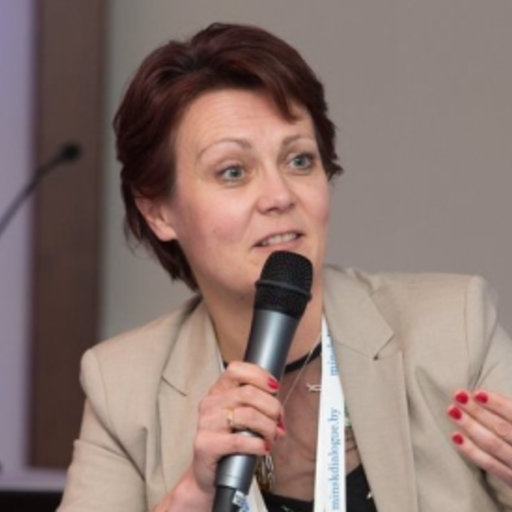Research Seminar: 'The Making of Resilient Communities: Change, Complexity and Resilience'

- Please note the time and venue have been updated
- Wednesday, 23 November 2022, 12:00-1:00 pm (UK time)
- Hybrid event: IAS Seminar Room, Zeeman Building and online on MS Teams.
- All Warwick staff, students, and alumni are welcome to attend.
Abstract
We live in times of transformational change, associated with growing complexity, fragmenting international orders, frequenting global crises, including the ongoing war in Ukraine, and diminishing control over our environment. These challenges cannot be addressed on a global level alone, and require a radical rethink of how we understand and manage change more effectively on all levels, in what is now called a ‘VUCA-world’ (Burrows and Gnad 2017) - a world of increasing volatility, uncertainty, complexity and ambiguity. This talk will address these challenges by exploring complexity as a new way of theorising the world, in which I argue, the attention should be given more to ‘the local’, ‘the relational’ and ‘the communal’, as the primary units of analysis, for constituting and managing change. This line of thinking invariably leads us to the notion of resilience as ‘a new art of governing complexity’ (Chandler 2014; 2020), which will form a central part of my discussion. Developing a post-neoliberal understanding of resilience and focusing on ‘the person’ and a ‘problem at source’, we contend that communities have the necessary strength, capacities and coping strategies to withstand and adapt to change on the ground (Korosteleva 2018; Juncos 2017). Our research has demonstrated (Korosteleva & Petrova 2021) that even without substantive material resources, communities are able to pull through adversity and crisis being driven by a sense of shared purpose and tenacity; and even mobilise themselves into emotive peoplehood, as attested, for example, by the case of Belarus and Ukraine when facing deep injustice, aggression, and war. This means that ‘governing complexity’ is more about these local, self-reliant and self-organising practices, and the relational value of (interspecific) community, than simply transposing and adopting top-down ‘modernising’ techniques and premeditated solutions through external intervention, which is often the case for the EU. This is not to idealise ‘the local’ by any means. Rather, we argue, a better understanding of resilience as self-governance, vested in local communities, may help us, consequently, develop more sustainable and responsive modes of governance on all levels, which forms the focus of the third part of this monograph, thus uniquely connecting complexity, through resilience, to governance, including both on the community level and the level of the evolving world order.
Speaker
Professor Elena Korosteleva
Elena Korosteleva is Professor of Global Sustainable Development, and Jean Monnet Chair of European Politics, which she was awarded twice by the European Commission in recognition of her research and teaching excellence. Before joining IGSD in 2022, she was Professor of International Politics and Director of the Global Europe Centre (Professional Studies) at the University of Kent for ten years. Prior to that Elena was a Senior Lecturer in International Politics and Director of the Centre for European Studies at Aberystwyth University.
Professor Korosteleva was the Principal Investigator for the GCRF UKRI COMPASS project (ES/P010849/1, 2017-21, £4mln), which concluded in March 2022. It was supported by the British government via UKRI, to address the challenges of capacity-building in developing countries. In particular, the COMPASS project, along with its partner at the University of Cambridge, sought to establish ‘the hubs of excellence’ at the top-level HEIs in Azerbaijan (ADA University), Belarus (BSU), Tajikistan (TNU) and Uzbekistan (UWED) for global partnership-building in the areas of research integration, impact governance, and sustainable communities. The project was HIGHLY COMMENDED by the Times Higher Education in 2021, under the category of the Best International Collaboration of the Year.
Register for the event
- If you are a Warwick staff member or student, please fill in the form below to register for the event. If you would like to attend the event online (on Microsoft Teams), once you have registered for the event we will send you the link to join the event via email closer to the time.
- If you are a Warwick graduate, please email Feng dot Mao at warwick dot ac dot uk to register for this event.
This form is closed and is no longer accepting any submissions. Thank you for your time.

